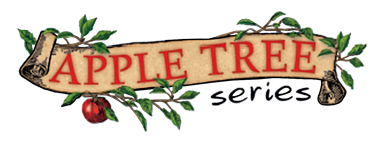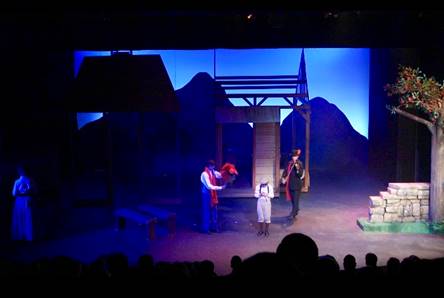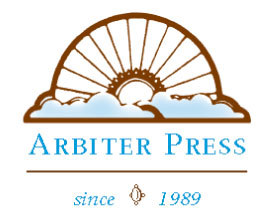
“Out of the Apple Orchard is a charming book, which presents a story of heart and hope, with humor, action and very human characters,” Ellen W. Kaplan (the playwright who adapted the book to the stage) told the Heritage.
"Watching Out of the Apple Orchard jump from the page and come to life in a play was enchanting! With a hint of Charles Dickens’ A Christmas Carol, it is an intriguing tale that is sparked by a child’s thievery, which brings about forgiveness and new beginnings. This play will turn hearts to what family is really all about." - Christine DeSouza of the Heritage Florida Jewish News
My party had four actual children in it tonight, they were transfixed. - Carl Gauze of the Archikulture Digest December 23, 2016
The Apple Tree Series has genuinely made a difference in the lives of audience members who attended either the readings or the premiere of the first play in our series. How do we know? Audience members told us. At the 2016 premiere of Out of the Apple Orchard, audience members rushed to share their experiences with us. Theatergoers of all ages told us they experienced forgiveness in their hearts along with empathy for the protagonist, Adam Bieman, after he made a mistake. Several children shared that the story gave them hope for second chances going forward.
Handfuls of children stopped to visit with author Yvonne David, sharing their feelings after viewing the play. One student voiced that she had learned compassion. The third-grader stated, “My favorite part of the show was when the dad forgave the boy for taking the apples.” While her favorite prop was “the turkeys, because they kept going around and around. It was like so funny.” Another young student said that his favorite part was “when he (Adam) stole the apples, and the man (the farmer) yelled at him,” (and later forgave him), while his favorite prop was the red bird. When asked by an interviewer if he learned anything, he replied, “Yes, I learned not to steal.” He also loved the show!
Lynn Telzer, an actor from Los Angeles, California, commented on the show, as well. She stated,” that there was a sense of supporting your family and caring about your family. That (concept) was important in the play, and I really liked that.”
IMAGINATION AND CREATIVITY WTH LIVE THEATER
SCENE FROM OUT OF THE APPLE ORCHARD, AS ADAM LEAVES THE ONE-ROOM SCHOOLHOUSE. THE RED BIRD IS REPRESENTED AS ADAM’S CONSCIENCE. THE ELECTRIC VIOLINIST PLAYS THE “VOICE” OF THE RED BIRD. THEIR INTERACTION CAPTURES THE ESSENCE OF THE MAGIC OF THEATRE. A DELIGHTFUL VISUAL AND MUSICAL EXPERIENCE.
ORLANDO PREMIERE OF OUT OF THE APPLE ORCHARD
ORLANDO REPERTORY THEATRE
DECEMBER 19-22, 2016.
ADAM (WALKING HOME, ALONE, EXCEPT FOR THE RED BIRD, WHICH FLIES OVERHEAD. HE WHISPERS TO IT) I know! Do not even look at the apples in the orchard. Don’t be tempted. Do not, not, not – be tempted!

An Interview with the Author of Out of the Apple Orchar
On October 19, 2005, Bob Kealing, a three-time Emmy award-winning journalist interviewed Yvonne David, author of Out of the Apple Orchard (Arbiter Press, 2005). Bob Kealing, a reporter for WESH-TV, Orlando, is the author of Kerouac in Florida, Where the Road Ends (Arbiter Press, 2004.)
Q. How did you get interested in writing about this subject?
A. Initially my son’s Bar Mitzvah teacher suggested that I write a young people’s book about the Jewish High Holidays. I wanted to write an American story and not one set in the Old Country. An image of a twelve-year-old boy taking apples from an orchard came to me one night. He wore knickerbockers and boots and a cap, two sizes too big, which drooped down to his eyebrows. Having completed the manuscript, I felt that adding a sense of place to my story would create a richer layer to the book. Eventually, my research led me to the Catskills in upstate New York.
Q. It seems as if the Catskills are intrinsic to the story line; how do they help make this a uniquely American story?
A. I became fascinated with the history of the Jewish settlers in the Catskills, and how many of the grand resorts and country clubs of the golden era in the Catskills had developed from such humble beginnings as the Jewish farms. Set in 1910, the book evolved into a Jewish American work of historical fiction for young people, while also addressing the importance of spiritual renewal, golden opportunities, and valuable education in America.
Q. On that note, how does the book and storyline celebrate Jewish American heritage?
A. By stressing the Jewish lessons learned, set within the immigrant experience and in particular the early Jewish settlers in the Catskills, my book celebrates our Jewish American heritage. However, this story can be extended to all immigrants. While striving to retain the values of their heritage, they can still enjoy the opportunities and freedoms of America. Through my historical fiction, and because I am a British immigrant, I feel that I can write objectively about the Catskill Mountains.
Q. What's been the reaction of the people in the places portrayed in your book?
A. I have had enthusiastic encouragement and overwhelming positive reaction to the book in the Catskills. Set in Mountaindale, a hamlet within the township of South Fallsburg, my fictional children’s story shows history coming alive. Many people living in the Catskills, or interested in its history, have supported me in my writing this work. Phil Brown, Professor, Brown University, and author of Catskill Culture and In the Catskills, John Conway, author of An Anecdotal History of Sullivan County and Sullivan County Historian, and Helen Kutsher, owner of Kutsher’s Country Club, have all helped to add the wealth of historical details in the work. Ken and Barbara Schmitt, involved in the revitalization of Mountaindale, have featured my book on the Mountaindale Community Development Project website. Phil Brown, President and Co-Founder, of the Catskills Institute invited me to be a speaker at the Annual Conference at Kutsher’s Country Club in Monticello, New York in August of this year. Other organizations, such as book stores, book fairs, libraries, schools, and senior groups, have invited me for speaking presentations and book signings.
Q. What's the main message you want children to take away from the story?
A. Taking something that does not belong to them is wrong. However, they can learn from their mistakes. When life presents them with difficult challenges, they can seek direction by turning to the wisdom of their heritage. Children can ask for forgiveness, make up for any misdeeds and have a fresh, new start.
Q. This is the beginning of a series, where do we go from here?
A. The second book in the series will take place in the late 1930s—in the winter, with flashbacks to the summer. The books in the Apple Tree Series will follow the Bieman family over four generations through the twentieth century. By reading my book series, treasured moments of summer spent in the Catskills by an entire generation of yesteryear can now be enjoyed by the younger generation of today.
Author's work on stage in NYC - See Release
Children's Author Engages BCES Students in a Timely Story - See Release
Retrospect - John Conway’s Weekly Column in the Sullivan County Democrat Copyright © 2005 by John Conway. Reprinted with permission. Author of Retrospect: An Anecdotal History of Sullivan County and Sullivan County Historian.
For children this holiday season, Arbiter Press offers Yvonne David’s first effort, Out of the Apple Orchard, a touching story set in Mountaindale in 1910.
Out of the Apple Orchard is wonderfully illustrated by Lyn Rodden, the author’s sister, and is intended as the first in a series of books following the Bieman family over four generations in the Catskills. David, who lives in Orlando, Florida, but is a frequent visitor to the area, is already busy researching the second installment, set here in the 1930s.
Heritage Florida Jewish News
Copyright © 2005 and 2006 by Lyn Payne, Assistant Editor.
Reprinted with permission.
‘Out of the Apple Orchard’ is an old-fashioned treat
When Adam discovers the succulent red apples growing at the tops of Mr. Friedland’s trees, he can’t resist…How he’s caught, how he makes amends, and how his family survives make for a storyline that will be appreciated by readers of all ages who have a yen for gentle, old-fashioned stories with positive but non-intrusive morals and appealing characters.
Author’s work on stage in NYC
Not only did Yvonne David’s children’s book Out of the Apple Orchardrecently win an honorable mention in the category of Multicultural Children’s Fiction at the Independent Publisher Book Awards, now it’s going to be staged as a play reading put on by New York City’s Mesaper Theatre on Sept. 17.
Ellen Kaplan, professor at Smith College, has adapted the work for the stage. “The process of bringing this rich and remarkable story to the stage was pure pleasure, and I am thrilled to see it come to life…”
Says Mesaper Theatre’s artistic director, Nicole Raphael, “The story is a reminder of forgiveness, which is a timeless lesson worthy of being retold year after year for the whole family and for children of all ages.
Orlando Leisure
Copyright © 2006 by Orlando Leisure. Reprinted with permission.
Review by award-winning local freelance journalist and manager of
Urban Think! Bookstore, Jim Crescitelli.
Yvonne David’s Out of the Apple Orchard, illustrated beautifully by Lyn Rodden, is a tale of a Jewish family who moved from New York’s Lower East Side in 1910 to a little village called Mountaindale, located way up in the Catskills. This delightful book … is a moving family tale that masterfully conjures up the magic of the High Holidays, as well as the rich history of the Catskills Jewish community. A joy to read.